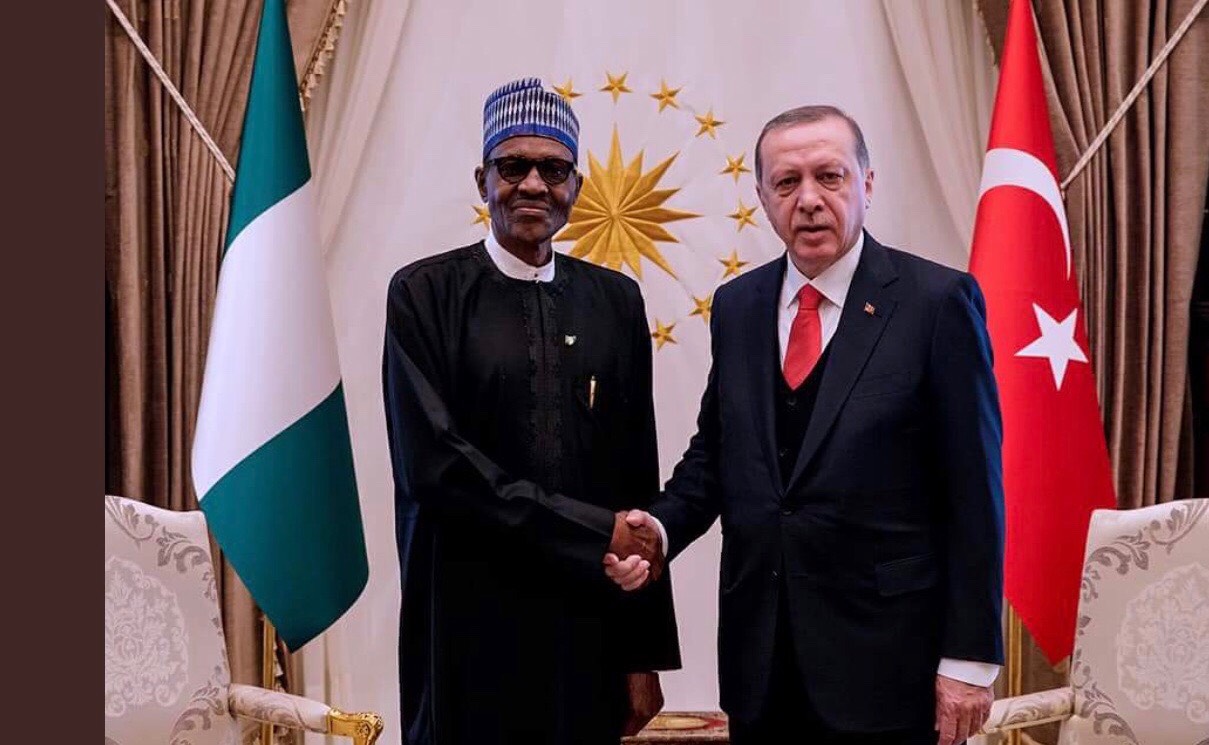Last week, the President of the Republic of Turkey, Recep Tayyip Erdogan, paid a two-day state visit to Nigeria during which the two countries reviewed the scope of relations between them. Mr Erdogan’s visit to Nigeria was the last stop on his African tour which took him to Angola and Togo respectively.
Since Turkey first established full diplomatic ties with Nigeria in August 1962, the relationship between the two countries has been steady. The total volume of Turkey’s trade with Nigeria which includes machinery, manufactured products, textiles, furniture and construction items, currently stands at two billion US dollars in monetary terms which is quite commendable.
Turkish airlines run a total of seven passenger flights to Lagos and Abuja respectively and three weekly cargo flights to Kano. There are thousands of Nigerian students schooling in Turkey under Turkish government scholarships, though hardly any Turkish students in Nigeria. Furthermore, tens of Turkish television shows are consumed in Nigeria, though the reverse is not the case.
Nigeria exports mainly gas to Turkey through the Turkish utility company, Botas, which is one of the customers of the Nigeria Liquefied Natural Gas Limited. So, it is safe to say the two countries have a very cordial relationship. The visit of the president to the country is, therefore, significant as it indicates growing ties between the two countries and as such a welcome development. It is also an indication that the country values its relationship with Nigeria, and we hope that the friendship is maintained and strengthened.
In his speech, President Buhari remarked that the visit provided an opportunity for “very useful discussions on a number of bilateral issues aimed at strengthening this cordial relationship between Nigeria and Turkey’’.
The Turkish president on his part expressed the hope that the volume of trade between his country and Nigeria would be further expanded by five billion dollars from the current two billion dollars in the foreseeable future.
In pursuit of this, both leaders announced the signing of eight major Memoranda of Understanding (MOUs) on energy, defence, industry, mining and hydrocarbons. We urge the government to follow through on these agreements to ensure that Nigeria gets full benefits from them. As we all know, it is not enough to sign agreements, only fulfilment of such will make impact.
Turkey is one of the fast-growing economies of the world at the moment. In fact, Turkey’s economy is now ranked among the top 20 economies in the world and the country is a key regional player in the Middle East, the Balkans, southern Europe and central Asia. Certainly, Turkey has leveraged its geo-strategic location of straddling the European and Asian continents very well, enabling it to reap the advantages that come with such a position while keeping its independence on the international stage.
Nigeria can tap from its experiences in order to improve its economy, especially as we struggle with diversification from oil to other areas. As a regional power in the West African sub-region, Nigeria can borrow a leaf from Turkey on how it emerged in the past decade and a half under the leadership of President Erdogan, as one of the prominent global players.
Turkey also has technical know-how in specific areas. It will do well for us as a country to consider how we can benefit from it to empower youths with skills so that they can be self-employed.
While Nigeria’s relations with Turkey has remained warm and cordial over the years, the country’s continued insistence that Nigeria closes the educational and health institutions established by a Turkish agency allegedly linked to the coup that took place a few years back, constitutes a potential source of divergence between the two countries.
When the coup took place in Turkey, Nigeria was one of the countries that voiced strong condemnation against it and offered commiserations to the government of President Erdogan. For the Turkish government to insist on closing down these institutions and handing over the Turkish nationals who assist in running them amounts to meddling in Nigeria’s internal affairs which is unacceptable. Both countries have a lot to benefit from one another but each must maintain its sovereignty and respect for the other in the process. The Turkish president has come and gone, it should not be treated as just another visit. The takeaways must be taken seriously.

 Join Daily Trust WhatsApp Community For Quick Access To News and Happenings Around You.
Join Daily Trust WhatsApp Community For Quick Access To News and Happenings Around You.


